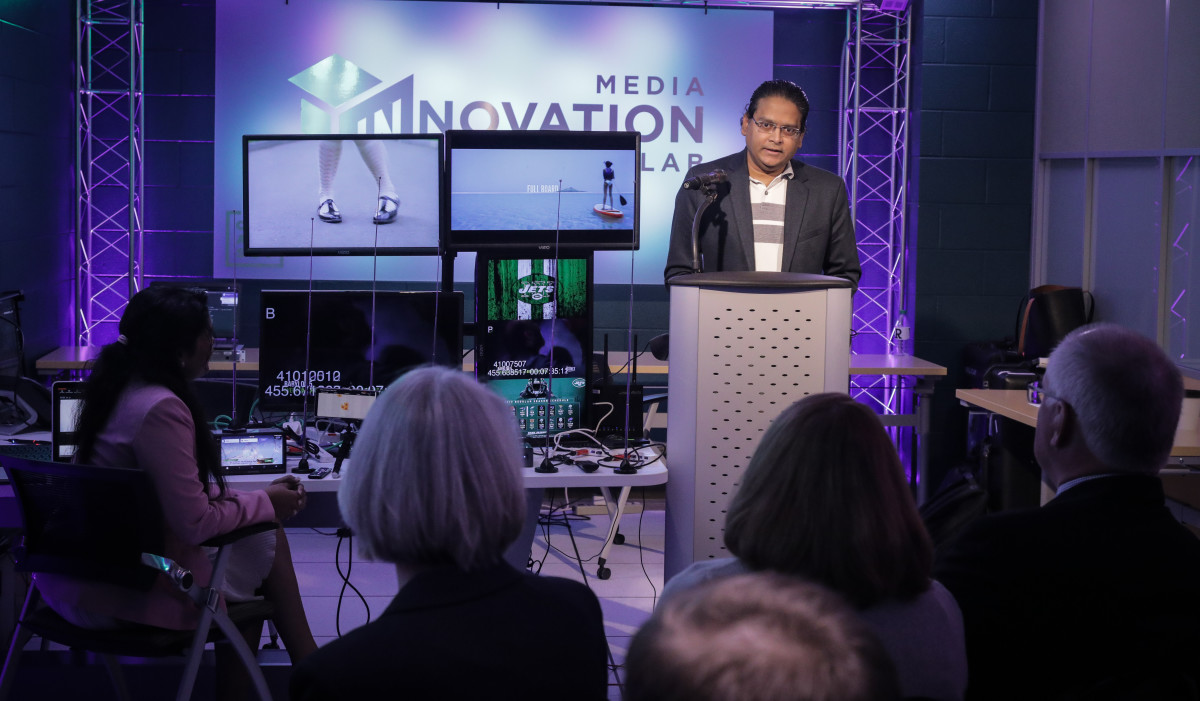Global Partnership Creates New Opportunities for Public Broadcasters to Better Serve their Communities, Using the Expertise of MSU and WKAR
Mobile apps. Educational games. TV streams. Emergency alerts. Interactive media.
From routine uses of internet technology to the untapped potential of the digital sphere, one organization is moving broadcasters into the future, preparing for the mass distribution of NextGen TV.
The Apollo TV Platform combines the expertise of Michigan State University, WKAR and Gaian Solutions, Inc., in an effort to educate broadcasters about the emerging TV standard, so they can develop new products for the communities they serve. Known as ATSC 3.0 or NextGen TV, the new standard will be widely available to TV viewers in the near future, as a voluntary upgrade to TV sets and digital devices.
The first public radio station to do so, WKAR secured an experimental license to develop ATSC 3.0 technology in 2018. In partnership with MSU’s College of Communication Arts and Sciences, they opened the NextGen Innovation Lab in September, and sought proposals for innovative projects that could be developed for the new standard. Known as NextGen TV, the standard combines the power of broadcast with the versatility of broadband, making mass media products and services available in new ways.
“The Apollo platform instantly opens up new opportunities and better experiences through cutting edge technology, open APIs, and toolkits,” said Dean Prabu David.
Using NextGen TV technology, media can now be distributed in a variety of methods, whether it means keeping a high-speed vehicle connected across great distances, providing interactive TV entertainment for targeted audiences, expediting the speed and efficiency of emergency alerts, or expanding access to people in rural communities.
The Apollo platform provides a suite of resources to broadcasters, leaders and researchers, including open source software. The platform offers NextGen TV services through tools that apply artificial intelligence (AI) and machine learning (ML) in a cloud-based, virtual environment to enable the convergence of broadcast and digital workflows. The platform also provides receiver and transmitter starter kits, field trials, and master classes in NextGen TV. More information about these services is available on a public website, which also serves as a portal for broadcasters and service providers.
“The coming NextGen TV economy will ensure overall growth of the broadcast industry and its long overdue integration with the digital transformation ecosystem,” said Chandra Kotaru, CEO and Founder of Gaian Solutions. “Public broadcasters are in a unique position to leverage NextGen TV opportunities. Apollo was designed to accelerate this phenomenon.”
In order for these advances in digital technology to be implemented, NextGen TV will need innovative thinkers and creators, investment to support new projects, participation from broadcasters, and a clear migration path to the new standard. WKAR at Michigan State University, Gaian Solutions, and APTS invite all content and spectrum based entrepreneurs, digital transformation agencies, broadcasters, and technology vendors to collaborate on Apollo PublicTV Platform, the new open platform for NextGen TV.
“Putting the tools of the Apollo platform in the hands of public broadcasters means that local communities can begin to benefit right now from the promise of NextGen TV,” said Susi Elkins, General Manager at WKAR Public Media.
By Melissa Priebe
